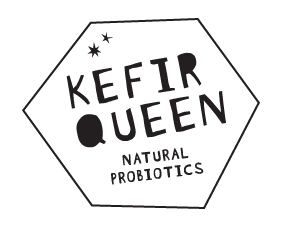“The four major benefits of fermentation are preservation, health, energy efficiency, and flavour”
Happy Gut Health
Fermentations are ancient rituals that humans have been performing for many generations. The process preserves food, and makes it both more digestible, and more nutritious, by creating microbial diversity that keeps your gut healthy. They offer beneficial bacteria, enzymes, pre-digested nutrients, amino acids, vitamins, minerals, calories/energy and billions of probiotics to boost our immune system and to restore good digestion. As well as being potent detoxifiers, ferments contain much higher levels of probiotics than supplements.
With ageing, healthy gut flora diminishes, and your stomach becomes less acidic. You can achieve optimal health, prevent rapid ageing and disease by adding living fermented foods to your diet, eating more plant-based foods, and being aware of of the consumption refined foods.
Fermented foods are created in an anaerobic condition with the action of microorganisms. Sugars and carbohydrates are converted into organic acids. Organic acids are PH neutral, which inhibits the growth of, and even destroys PH-sensitive bacteria.
Microorganisms live in every part of the biosphere and are an imperative part of human wellbeing. "Microflora", as they are often called, break food down into nutrients that our bodies can readily absorb, protecting us from potentially dangerous organisms, and teaching our immune system how to function effectively. Most people feel better after a month of daily consumption, some much sooner.
The first improvement is usually increased energy, feelings of well-being and improved skin tone. Depending on the individual, some serious disease conditions may take years to heal. If you are new to fermentations, Penelope recommends taking it slowly, as too large a portion may provoke a healing crisis, which occurs when the probiotics kill off pathogens in your gut, which in turn release toxins.
Observe your reactions before proceeding, and increase your dose as tolerated.
Penelope encourages you to conduct your own research, as everybody reacts differently, and individual results will vary. Consuming fermented foods daily may also affect medication-make sure you advise your doctor of any changes to your diet.
